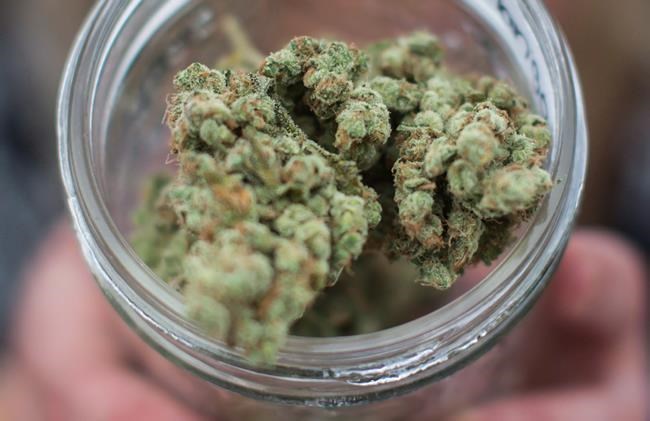OTTAWA — Chinese officials have been quietly grilling Canada about illicit marijuana flowing to their country, prompting Ottawa to agree to work with them on the problem, an internal federal memo reveals.
The previously unknown issue arose during talks between the two countries on curbing the clandestine importation of opioids into Canada, which has fuelled a crisis of overdose deaths from fentanyl and related compounds.
Federal officials are trying to fight the opioid influx by drawing on expertise from various agencies. The RCMP and Canada Border Services Agency have been collaborating with Chinese law-enforcement counterparts to address the scourge.
Canada says the Chinese government takes a consistently strong official stand against trafficking in illicit drugs and supports international co-operation to disrupt criminal activities.
But until now there has been little or no public hint of Beijing pointing a finger at Canada over illegal drugs.
An April 2017 meeting of deputy ministers "determined that China is concerned about what Canada is doing to stem the flow of illicit cannabis into China and we will be working with them on this issue," says the federal memo released under the Access to Information Act.
A spokesman for the Chinese Embassy in Ottawa had no comment on the apparent weed-related worries.
Andrew Gowing, a spokesman for Public Safety Canada, could not provide statistics on the movement of Canadian pot to China.
"The clandestine nature of illegal cannabis exportation from Canada to any country, including China, makes it difficult to estimate exactly how often it occurs," he said.
Canada co-operates through the United Nations Commission on Narcotic Drugs to share information on existing threats and promote solutions to problematic substance use, Gowing said.
"We live in an increasingly global and interconnected world where crime has no borders. Canadian law enforcement works closely with a number of international partners, including Chinese law enforcement, to disrupt international drug trafficking networks and combat international drug trafficking," he said.
Statistics Canada recently said that about $1.2 billion worth of cannabis — or 20 per cent of Canada's total pot production — was sold illegally beyond the country's borders last year.
Various sources have said over the years that most of Canada's illicit pot ends up in the United States, but reliable information about exports — including their destination — has been scarce.
A Public Safety Canada report last year noted the RCMP has estimated that between 50 and 80 per cent of cannabis grown in British Columbia was destined for U.S. markets. Another estimate put the percentage at 70 per cent.
"These statistics, while striking, represent an important gap in the data on the exportation of Canadian-produced cannabis outside of Canada," the report said. "They appear to be one-time estimates, with little or no details provided on the source of the data or the methodology used to develop the estimates."
Gowing said it's important to note that exportation of cannabis will remain illegal once a bill legalizing recreational marijuana use passes.
"The government has committed to ensuring that police have the appropriate tools and other resources in place to strictly enforce the law," he said.
— Follow @JimBronskill on Twitter


